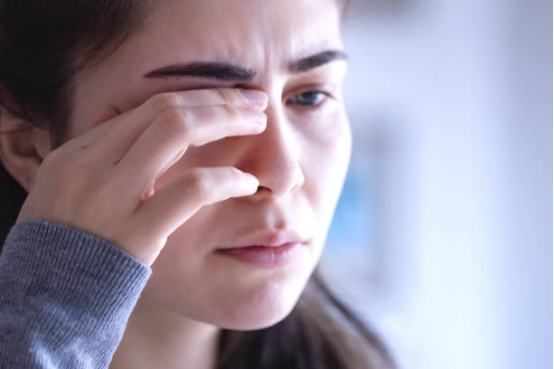Uveitic Macular Edema: Symptoms, Causes, and Treatment Options
Uveitis, an inflammatory condition of the eye, can lead to macular edema, a serious complication that affects central vision. Understanding the symptoms, causes, and treatments for uveitic macular edema can help you manage this condition effectively.
Uveitis, an inflammatory condition of the eye, can lead to macular edema, a serious complication that affects central vision. Understanding the symptoms, causes, and treatments for uveitic macular edema can help you manage this condition effectively.

What Is Uveitic Macular Edema?
Uveitic macular edema occurs when inflammation in the uvea (the middle layer of the eye) causes fluid to leak into the macula, leading to swelling and vision problems. It is a common cause of vision loss in patients with uveitis.
What Causes Uveitic Macular Edema?
The inflammation associated with uveitis damages the blood vessels in the retina, causing fluid leakage. Uveitis can be caused by autoimmune diseases, infections, or trauma. Managing the underlying inflammation is key to preventing macular edema.
Symptoms of Uveitic Macular Edema
Symptoms may include:
- Blurred or distorted central vision
- Floaters or dark spots in your vision
- Eye pain or redness
- Sensitivity to light
If you have uveitis and notice these symptoms, seek medical attention promptly.
Diagnosing Uveitic Macular Edema
Your eye doctor may use optical coherence tomography (OCT) to detect fluid buildup in the macula and assess the severity of the condition. Early diagnosis is essential for effective treatment.
Treatment Options for Uveitic Macular Edema
- Medications: Corticosteroids (oral, injectable, or topical) are often used to reduce inflammation. Anti-VEGF injections may also be prescribed.
- Immunosuppressive Therapy: For chronic uveitis, drugs like methotrexate or cyclosporine can help control inflammation.
- Laser Therapy: In some cases, laser treatment may be used to address fluid leakage.
- Surgery: A vitrectomy may be necessary if inflammation or swelling is severe.
Preventing Uveitic Macular Edema
- Manage underlying conditions like autoimmune diseases.
- Follow your treatment plan for uveitis carefully.
- Schedule regular eye exams to monitor for complications.
By addressing inflammation early and staying proactive about your eye health, you can reduce the risk of uveitic macular edema and preserve your vision.